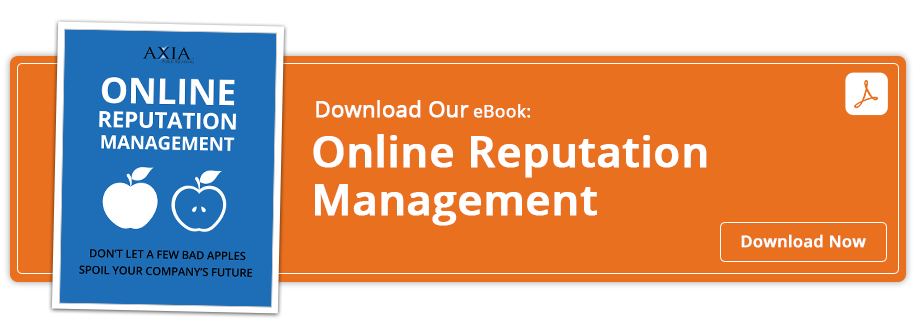 What the European Google ruling on removing information may mean for your company
What the European Google ruling on removing information may mean for your company
When you were in school, teachers often scared students into behaving well with threats of bad reports that would be put on their permanent records. Even they could not have foreseen how true this threat would become with the advent of search engines.
In our personal lives, small indiscretions and minor mistakes are typically signs of an interesting life well lived. Not so in business. Every company likely has some sort of information online that it would rather erase. Whether or not this ever becomes possible, it is important to recognize the impact of your online reputation
What happened in Europe?
You may have heard that the European Court of Justice recently ruled that a user can make a request of search engines to remove information that is injurious to his reputation. While the removal of information might not be immediate, it allows the search engine, in essence, to forget certain pieces of information or damaging links.
This means that if your company was involved in a lawsuit or faced some sort of crisis years ago, and news reports or documents keep showing up in searches, you could ask to have those reports permanently deleted. In today’s world of information availability on the Internet, it would almost be as if the bad press never happened.
Why this may never work in America
In America, freedom of the press protects information in print and online. As long as the information is true, you have no legal grounds to get it removed.
The old adage “if it bleeds, it leads” still holds true. Negative information typically appears on the front page and receives the most hits and retweets. Corrections, retractions and positive outcomes are usually relegated to less noticeable spaces where they don’t receive nearly as much attention.
Why reputation management is so important
An elephant never forgets, and neither will American search engines. In fact, if you were to Google your company’s name right now, you would most likely still turn up hits and articles that are several years old, possibly with information that is no longer accurate.
Any piece of negative information can come back at any time to bite you. You may have done numerous good deeds, but that will not prevent a six-year-old negative news article from showing up. This is one of the many reasons why online reputation management is so important.
How you can manage your online reputation
Although you cannot erase the information like they can in Europe, there are methods for controlling the negative hits by pushing them farther down in the search results. Research has shown that a whopping 90 percent of people never bother to look beyond the first page of hits in a search.
Always be aware of your online image. Conduct regular searches on your company to see what your customers see when they look you up.
Create a blog so that there’s a constant flow of good news about your company appearing regularly. You can use your blog to position your company or CEO as a thought-leader in your industry.
Hire the right PR agency to handle all this for you. At Axia, we understand that a negative reputation in the virtual world can cost you real dollars. We will monitor your brand online and employ the latest reputation protection measures to decrease the impact of any negative information and safeguard the good name you’ve worked hard to build. To learn more, download our e-book Online Reputation Management, or contact Axia today.
Lisa Goldsberry is a writer for Axia Public Relations with more than 15 years of public relations experience. She specializes in business, higher education and technology PR. Connect with Axia Public Relations on Twitter at @axiapr.
Topics: public relations



Comment on This Article